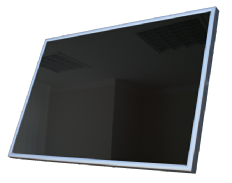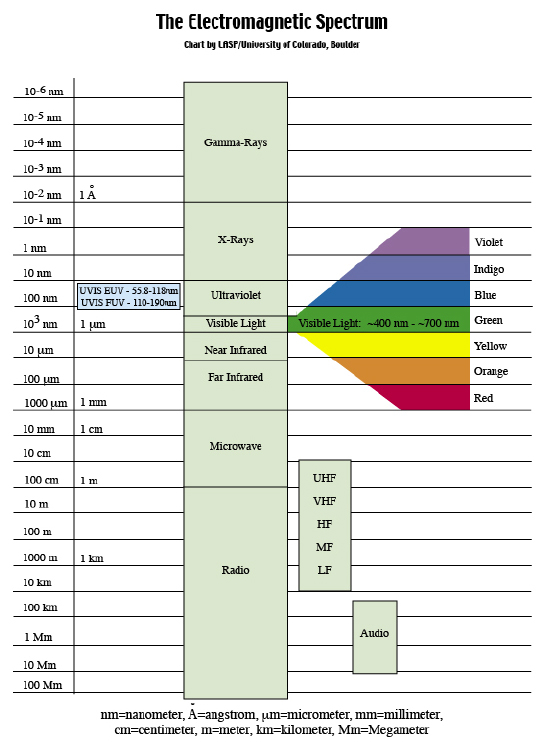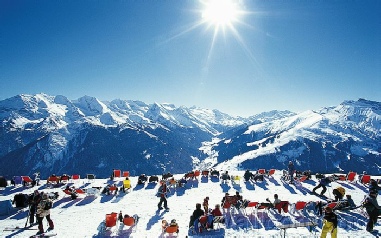


The Science Of Infrared Heating
The law of thermodynamics say there are three ways heat can be transferred.
1) Conduction- Heat travelling from an area of high temperature to an area of low temperature within an object.
2 Convection - Heat circulation in an atmosphere of water or gas
3 Radiation- Electromagnetic transfer even within a vacuum.
The majority of heating systems rely on convection. Our German radiators( see Elsco web site) rely on a combination of convection and radiation. Our Far Infra red heaters work on radiated heat, using what is known as the Far Infrared part of the spectrum.The sun emits electromagnetic radiation across the whole of the spectrum shown on the chart opposite.

Our eyes happen to be sensitive to the visible part of this spectrum which we use to see. ( That's why we cant see in the dark!) We feel heat from the infrared part of the spectrum, which is why you can feel warm when the sun is shining on you but suddenly feel much colder when a cloud passes in front of the sun. Also the air can be very cold on top of a mountain, but a skier can still sunbath and feel warm with the infrared heat from the sun. Our heaters radiate Far infrared which does not so much heat the air, but the objects that the infrared comes into contact with . Technically it causes the molecules it interacts with to vibrate whether its a person or a physical object . This vibration produces heat and causes the object to heat up.





